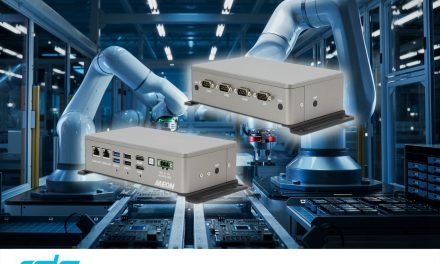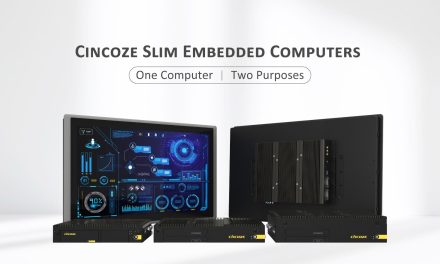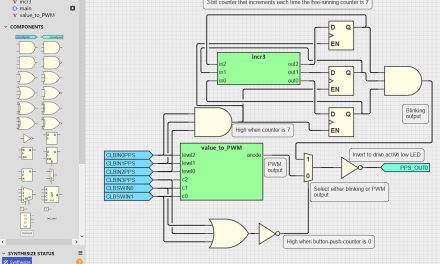 At Embedded World 2017, NXP automotive highlighted its push to help engineers take on the challenges of automotive applications development. Fresh off Mobile World Congress, where the team highlighted the release of NFC Secure Car Access technology, taken on board by 5 Leading OEMs and its membership in Auto-ISAC to collaborate on security challenges of connected cars, it chose Embedded World to focus on current automotive development.
At Embedded World 2017, NXP automotive highlighted its push to help engineers take on the challenges of automotive applications development. Fresh off Mobile World Congress, where the team highlighted the release of NFC Secure Car Access technology, taken on board by 5 Leading OEMs and its membership in Auto-ISAC to collaborate on security challenges of connected cars, it chose Embedded World to focus on current automotive development.
Automotive manufacturers are in a race to adapt to changing consumer and market demands. In-car functions are evolving rapidly as the market moves from a motor vehicle to a mobility platform. Even relatively static body applications like doors, steering wheels, seats, climate control and lighting systems are getting a makeover.
NXP believes that the release of its new S32K Microcontroller platform, launched at Embedded World, will help accelerate automotive software design and reduce development effort and time to market in a broad range of automotive applications. The NXP S32K1 family combines a suite of automotive grade tools and software to support a scalable family of ARM Cortex-based MCUs with headroom for the automotive development of tomorrow. 10 of the top 15 global car manufacturers are already using S32K in next-generation vehicles.
NXP’s new S32K family of 32-bit ARM Cortex based automotive microcontrollers (MCUs) is the latest in a long line of AEC-Q100 qualified, high-reliability products to address this segment. It has big shoes to fill. Its predecessors include the 8-bit S08, 16-bit S12/S12X and 32-bit MPC5x MCU families.
The S32K family builds on this legacy in three key areas and offers new opportunities for end-product differentiation in secure, connected vehicle edge nodes:
· broad family scalability – compatible MCU families with multiple performance, feature and pin-count options for fast, efficient end product platform evolution;
· next generation processing and peripherals – ARM Cortex-M class based cores, CAN FD, robust hardware security and low power performance;
· comprehensive software enablement – automotive-grade Software Development Kit (SDK), S32 Design Studio IDE and third party ecosystem support
S32K MCUs are supported by a range of automotive-grade development tools to speed and simplify the software development process. S32 Design Studio (S32 DS) is a free of charge, unlimited code size, Eclipse-based IDE with software and tools plug-in support. Integrating the open-source GNU Compiler Collection (GCC) and GNU Debugger (GDB) as well as proprietary device initialisation tools, projects can be exported between S32 DS and 3rd party compilers and debuggers and code generated for either bare metal or SDK use. Using the Processor Expert tool developers can capture CPU, peripherals (internal and external) and software functionality into embedded components and configure them using a simple GUI. The tool then generates highly optimised embedded C-code saving a huge amount of manual development effort.
 For applications that don’t require AUTOSAR support an Automotive-grade SDK is available. This consists of free of charge peripheral drivers, the freeRTOS operating system and critical middleware. MISRA tested, the SDK comes pre-installed within the S32 DS IDE and is also compatible with 3rd party compilers & debuggers including those from 3rd party IAR Systems. Documented source code and numerous out-of-the-box examples and demos are included for evaluation and initial development.
For applications that don’t require AUTOSAR support an Automotive-grade SDK is available. This consists of free of charge peripheral drivers, the freeRTOS operating system and critical middleware. MISRA tested, the SDK comes pre-installed within the S32 DS IDE and is also compatible with 3rd party compilers & debuggers including those from 3rd party IAR Systems. Documented source code and numerous out-of-the-box examples and demos are included for evaluation and initial development.
With robust, high speed timers and analogue peripherals, S32K MCUs are well suited to the growing number of in-car electric motor applications – fuel/oil/water pumps, HVAC systems and seats/mirrors. To assist developers a range of design tools are offered: Automotive Math and Motor Control Library (AMMCLIB), Motor Control Toolbox (Matlab tool for model-based design), and the FreeMASTER run-time debug monitor with Motor Control Application Tuner (MCAT) plug-in.
The first S32K MCU family, the S32K144 with 512KB of flash memory, launched in March 2017 with mass market availability of 100/64 pin LQFP and MAPBGA samples and low cost Arduino compatible evaluation boards. Product grade devices will be available in the second quarter of 2017.
About Danny Basler: Technical Marketer, Automotive Microcontrollers and Processors Business, NXP
Danny Basler graduated from the University of Paisley in the UK with a bachelor degree in Electronic & Electrical Engineering. He joined NXP in 2002 and has held several positions in Automotive and Industrial Microcontroller product marketing as well as account management.




